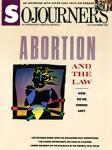For the past eight years, the Solidarity-led opposition in Poland has carefully charted a course toward democracy and self-determination. But in recent months history, as the Marxists say, or the God of history, as most Poles would have it, has torn up all of the rational blueprints for Poland's future.
Instead, political events in that nation have taken on the surreal character of a dream. Activists who were imprisoned little more than a year ago are now leaders of the Parliament, and Tadeusz Mazoweicki, a Catholic intellectual and ex-con himself, heads a government in which Solidarity occupies half of the cabinet posts.
The installation of a Solidarity-led government in Poland is like a dream, but it's a dream come true for generations of Poles who have struggled for more freedom and independence -- and especially for those who, with such high hopes, launched the Solidarity trade union in August 1980. It is also a dream come true for all of us around the world who may entertain the notion that it is possible to resolve long-standing conflicts, rectify oppression, and even change the world a little, without recourse to bloodshed.
The road to Poland's surprising future began last year when Solidarity re-emerged to lead a new wave of strikes in the nation's mines and factories. The atmosphere for Solidarity's re-emergence was eased by the advent of Gorbachev and the rhetoric of glasnost and perestroika, which seemed uniquely applicable to Poland. But the process of change has been most accelerated by the urgency of Poland's horrific economic crisis, as deadly stagnation and hyperinflation have brought the nation's daily business to the brink of collapse.
In this economic context, the threat of renewed labor unrest helped turn Poland's Communist ruler, Gen. Wojceich Jaruzelski, into a born-again pluralist. Poland's economic problems required tough action which could only be taken with popular support, and the workers made it clear that the minimum cost of that support was the recognition of Solidarity as a legitimate player in Polish politics. So talks aimed at forging a popular consensus for political and economic reform began between the government and the Solidarity-led opposition.
The principal result of those talks was the June parliamentary election, in which Solidarity participated for the first time. On election day the Polish people took control of events and gave Solidarity an incredible landslide victory: The union-selected slate of candidates won all but one of the seats it contested. The Solidarity victory was matched by an equally resounding "throw-the-rascals-out" vote against the Communist Party establishment.
The decisive nature of the vote created almost as many problems for Solidarity as it did for the Party. The rules of the election were designed to guarantee the Communists and their two allied "puppet" parties a majority in one house of the Parliament, as well as control of the presidency, the military, and the police. Under this historic compromise, Solidarity expected to function for the next few years as an open opposition group inside and outside of the Parliament, and then make its bid for power in the completely free election scheduled for 1993.
But the outsized scale of Solidarity's victory and the Communists' humiliating defeat meant that no government formed without Solidarity could credibly claim legitimacy. Solidarity, however, refused to be corralled into a junior partnership that would make it the legitimizing cover for continued Communist power.
Solidarity would not enter the government, Lech Walesa announced, but it would consider forming a government itself. And finally, when all else had failed, that is what it did. Walesa wisely declined the prime ministership and chose instead to maintain his independent authority as leader of Solidarity-the-union, and as a sort of father-of-his-country figure.
SOLIDARITY LEADERS ARE well aware of the dangers of their sudden ascent. They inherit nominal control of an immensely powerful and largely hostile bureaucracy with a stake in sabotaging reform. The Party-controlled security forces have pledged allegiance to the reform process, but that could always change. Furthermore, Solidarity, as a union-based movement, faces the perverse task of implementing economic policies that will inevitably mean short-term sacrifices for the working class.
In addition, substantial differences exist within the opposition as a whole, and even within Solidarity, over economic and social policy and what we in the United States have come to call "cultural issues." Those differences have been submerged during the long struggle for power, but they will surely surface now. One potentially ugly source of conflict in the new Poland is the arch-traditionalist, reactionary, and often anti-Semitic style of Catholicism recently exemplified by Cardinal Glemp in the Auschwitz convent controversy.
Politics is a much messier world than the one of dreams. But Solidarity has taken the risk of turning its dreams into political reality, and in so doing it has inaugurated the beginning of the future. As Nobel laureate Lech Walesa said of the recent turn of events in Poland, "It may not be better, but at least it will be more fun."
Danny Duncan Collum is a Sojourners contributing editor.

Got something to say about what you're reading? We value your feedback!
